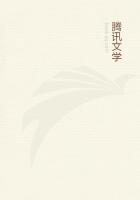And {8}even historiographers,although their lips sound of things done,and verity be written in their foreheads,have been glad to borrow both fashion and,perchance,weight of the poets;so Herodotus entitled the books of his history by the names of the Nine Muses;and both he,and all the rest that followed him,either stole or usurped,of poetry,their passionate describing of passions,the many particularities of battles which no man could affirm;or,if that be denied me,long orations,put in the months of great kings and captains,which it is certain they never pronounced.
So that,truly,neither philosopher nor historiographer could,at the first,have entered into the gates of popular judgments,if they had not taken a great disport of poetry;which in all nations,at this day,where learning flourisheth not,is plain to be seen;in all which they have some feeling of poetry.In Turkey,besides their lawgiving divines they have no other writers but poets.In our neighbour-country Ireland,where,too,learning goes very bare,yet are their poets held in a devout reverence.Even among the most barbarous and ****** Indians,where no writing is,yet have they their poets who make and sing songs,which they call "Arentos,"both of their ancestor's deeds and praises of their gods.A sufficient probability,that if ever learning comes among them,it must be by having their hard dull wits softened and sharpened with the sweet delight of poetry;for until they find a pleasure in the exercise of the mind,great promises of much knowledge will little persuade them that know not the fruits of knowledge.In Wales,the true remnant of the ancient Britons,as there are good authorities to show the long time they had poets,which they called bards,so through all the conquests of Romans,Saxons,Danes,and Normans,some of whom did seek to ruin all memory of learning from among them,yet do their poets,even to this day,last;so as it is not more notable in the soon beginning than in long-continuing.
But since the authors of most of our sciences were the Romans,and before them the Greeks,let us,a little,stand upon their authorities;but even so far,as to see what names they have given unto this now scorned skill.{9}Among the Romans a poet was called "vates,"which is as much as a diviner,foreseer,or prophet,as by his conjoined words "vaticinium,"and "vaticinari,"is manifest;so heavenly a title did that excellent people bestow upon this heart-ravishing knowledge!And so far were they carried into the admiration thereof,that they thought in the changeable hitting upon any such verses,great foretokens of their following fortunes were placed.Whereupon grew the word of sortes Virgilianae;when,by sudden opening Virgil's book,they lighted upon some verse,as it is reported by many,whereof the histories of the Emperors'lives are full.As of Albinus,the governor of our island,who,in his childhood,met with this verse -Arma amens capio,nec sat rationis in armis and in his age performed it.Although it were a very vain and godless superstition;as also it was,to think spirits were commanded by such verses;whereupon this word charms,derived of "carmina,"cometh,so yet serveth it to show the great reverence those wits were held in;and altogether not without ground,since both the oracles of Delphi and the Sibyl's prophecies were wholly delivered in verses;for that same exquisite observing of number and measure in the words,and that high-flying liberty of conceit proper to the poet,did seem to have some divine force in it.
And {10}may not I presume a little farther to show the reasonableness of this word "vates,"and say,that the holy David's Psalms are a divine poem?If I do,I shall not do it without the testimony of great learned men,both ancient and modern.But even the name of Psalms will speak for me,which,being interpreted,is nothing but Songs;then,that is fully written in metre,as all learned Hebricians agree,although the rules be not yet fully found.
Lastly,and principally,his handling his prophecy,which is merely poetical.For what else is the awaking his musical instruments;the often and free changing of persons;his notable prosopopoeias,when he maketh you,as it were,see God coming in His majesty;his telling of the beasts'joyfulness,and hills leaping;but a heavenly poesy,wherein,almost,he sheweth himself a passionate lover of that unspeakable and everlasting beauty,to be seen by the eyes of the mind,only cleared by faith?But truly,now,having named him,I fear I seem to profane that holy name,applying it to poetry,which is,among us,thrown down to so ridiculous an estimation.But they that,with quiet judgments,will look a little deeper into it,shall find the end and working of it such,as,being rightly applied,deserveth not to be scourged out of the church of God.















